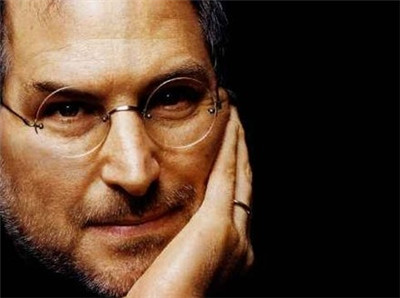(单词翻译:单击)
The relationship between journalists and Steve Jobs could often be fraught, but there were always a handful of reporters he liked and trusted. They included John Markoff of The New York Times; Steven Levy, formerly of Wired magazine (he’s now at Medium); Walt Mossberg, the longtime technology columnist for The Wall Street Journal (he’s now at Re/code); and Brent Schlender of Fortune. They had all been on the technology beat seemingly forever, and they had known Jobs for decades.
史蒂夫·乔布斯(Steve Jobs)与记者之间的关系常常糟糕,不过也有一些记者,一直受到了他的喜爱和尊重。其中包括《纽约时报》的约翰·马科夫(John Markoff);曾供职于《连线》杂志的史蒂文·列维(Steven Levy),现在他在Medium;长期在《华尔街日报》(Wall Street Journal)写科技专栏的沃尔特·莫斯伯格(Walt Mossberg),现在他在Re/code;以及《财富》(Fortune)杂志的布伦特·施伦德(Brent Schlender)。他们好像一直都在跑科技口,都和乔布斯打了几十年的交道。

As Schlender writes in “Becoming Steve Jobs,” the forthcoming book he co-authored with Rick Tetzeli, he first met Jobs in April 1986, eight months after the Apple co-founder had been ousted by John Sculley, then Apple’s chief executive. Jobs, who had started a new company called NeXT, was 31. Schlender, who had just joined The Wall Street Journal’s San Francisco bureau, was 32.
施伦德在与里克·特策利(Rick Tetzeli)合著的新书《成为乔布斯》(Becoming Steve Jobs)中写道,他第一次遇到乔布斯是1986年4月,八个月前苹果公司的这位联合创始人被时任CEO约翰·斯卡利(John Sculley)赶走了。当时,乔布斯创办了一家名为NeXT的新公司,时年31岁。施伦德则刚加入《华尔街日报》的旧金山分社,当时32岁。
During the next quartercentury, Schlender conducted “more than 150 interviews and informal conversations” with Jobs. He wrote cover stories for Fortune about Apple, some of which Jobs liked, and some of which he hated. On occasion, he visited Jobs at his home in Palo Alto, Calif. What began as a subject-journalist relationship evolved into something deeper — “a long, complicated and mostly rewarding relationship,” as Schlender characterizes it in the book.
在接下来的四分之一个世纪里,施伦德和乔布斯有过“超过150次采访和非正式谈话”。他为《财富》撰写过关于苹果的封面报道,其中一些让乔布斯喜欢,另一些则让乔布斯厌恶。有时,他前往乔布斯位于加州帕洛阿尔托的家中拜访。最初采访对象和记者的关系,变得更加深入,成了“一种漫长、复杂,但大体有益的关系”,施伦德在书中这样形容道。
So it is not a huge surprise that Schlender — and his friend Tetzeli, a former Fortune deputy managing editor — would see Jobs in a different light than most. (Disclosure: I worked with Schlender and Tetzeli during my decade at Fortune.) After Jobs died, they write, the coverage reflected “stagnant stereotypes.” On the one hand, “Steve was a genius with a flair for design,” whose powers of persuasion were such that he could convince people that the sun rose in the west and set in the east. On the other hand, he was also “a pompous jerk,” who humiliated employees and “disregarded everyone else in his single-minded pursuit of perfection.”
所以,施伦德和他的朋友特策利(前《财富》杂志执行副主编)对乔布斯的看法与多数人不同,也不太出人意料了。(我承认,我在《财富》的十年里,曾与施伦德和特策利共事。)乔布斯去世后,他们写道,报道反映了“僵化的印象”。一方面,“史蒂夫是一个有设计品位的天才”,他的说服力很强,以至于能让人相信太阳从西边升起,在东边落下。另一方面,他也是一个“自负的混蛋”,羞辱同事,“偏执地追求完美,无视其他任何人。”
It is Schlender’s and Tetzeli’s contention that Jobs was a far more complex and interesting man than the half-genius/half-jerk stereotype, and a good part of their book is an attempt to craft a more rounded portrait. What makes their book important is that they also contend — persuasively, I believe — that, the stereotype notwithstanding, he was not the same man in his prime that he had been at the beginning of his career. The callow, impetuous, arrogant youth who co-founded Apple was very different from the mature and thoughtful man who returned to his struggling creation and turned it into a company that made breathtaking products while becoming the dominant technology company of our time. Had he not changed, they write, he would not have succeeded.
施伦德和特策利认为,乔布斯远非一半天才一半混蛋的惯常形象,而是一个远更复杂而有趣的人。两人的书中用了很多笔墨尝试勾画出一幅更全面的形象。他们的书之所以重要,还在于他们也提出,尽管形成了刻板印象,但巅峰时期的乔布斯和事业刚开始时,并不是同一个人——在我看来他们的论述很有说服力。共同创立苹果的那个稚嫩、鲁莽、傲慢的年轻人,与危难之时回归苹果的那个成熟、多思的男人之间,有很大的不同。他回到自己缔造的公司之后,将它转变成了一家能够造出慑人心魄的产品的企业,这家公司已经成为了我们这个时代主导的科技企业。他们写道,如果他没有转变,可能就不会成功。
For Schlender and Tetzeli, the crucial period was the most overlooked part of Jobs’s career: The years from 1985 to 1997, when he was in exile from Apple and running NeXT. As a business, NeXT was a failure. Begun as a company that was going to bring affordable yet superior computers to the higher education market, it eventually had to abandon the hardware side of the business and become a pure software company. The point that is normally made about NeXT is that when Jobs returned to Apple, he brought with him the NeXTSTEP operating system, which became the foundation for a new generation of Macs and was a critical component of the company’s revival.
在施伦德和特策利看来,这段关键的时期是他职业生涯中最被忽视的部分。从1985年到1997年,那时他被苹果放逐,于是转而经营NeXT。作为一家企业,NeXT并不成功。这家公司的目标是将出色但廉价的电脑,推向高等教育市场,但最后不得不放弃硬件业务,成为了一家纯软件公司。关于NeXT人们经常谈到的是,乔布斯回到苹果之后,将NeXTSTEP操作系统带了过来。这个系统成了新一代Mac的根基,也成了公司起死回生的关键因素。
Every bit as important, though, was that Jobs brought his core group of executives with him to Apple, and they stayed with him for years. At the same time he was running NeXT, Jobs also owned Pixar, the animation studio he bought from George Lucas. It took years before Pixar came out with its first full-length movie, “Toy Story.” During that time, he saw how Ed Catmull, Pixar’s president, managed the company’s creative talent. Catmull taught Jobs how to manage employees.
不过,同样重要的是,乔布斯把麾下一群核心的高管也带到了苹果,他们追随乔布斯很多年。与此同时,他也在经营NeXT,而且他同时也拥有从乔治·卢卡斯(George Lucas)手中购买的动画工作室皮克斯(Pixar)。皮克斯花了很多年,才推出了第一部全长电影《玩具总动员》(Toy Story)。在那段时间,他了解了皮克斯总裁艾德·卡特姆(Ed Catmull)管理公司创意人才的方式。是卡特姆教会了乔布斯,要怎么管理员工。
When Jobs returned to Apple, he was more patient — with people and with products. His charisma still drew people to him, but he no longer drove them away with his abrasive behavior and impossible demands. He had also learned that his ideas weren’t always the right ones, and he needed to listen to others.
乔布斯回到苹果后变得更有耐心了,对人、对产品都是如此。他的个人魅力仍然能吸引人来到身边,但是不再会用粗鲁的举止和苛刻的要求把人撵走。他也明白了,自己的想法并不总是对的,他需要听取别人的意见。
Perhaps the most important example of this was the App Store. Jobs had initially opposed allowing outside developers to build apps for the iPhone, but he did a quick about-face once he realized he was wrong. The App Store has been hugely important in making the iPhone perhaps the most profitable consumer electronic device ever.
这种转变最重要的例子或许就是App Store。乔布斯最初反对让外部开发者为iPhone开发app,不过在认识到自己错了之后,就迅速改变了立场。iPhone能成为有史以来利润最丰厚的消费电子产品,App Store起到了巨大的作用。
Jobs has long been hailed as one of the great creative minds of modern business. His genius for creating products and his marketing flair have also been rightly hailed. All of that comes through in “Becoming Steve Jobs,” but so does something else: He was a great manager. You can’t build a great company if you aren’t one.
乔布斯长期以来都被奉为现代商业世界一个有创造力的伟大头脑。他创造产品的天才,他在营销方面的天赋也理所应当地受到了赞许。所有这些都在《成为乔布斯》中得到了表达,不过书中还提到了另外一点:他是一个很棒的经理人。如果不是很棒的经理人,根本建立不了很棒的公司。


